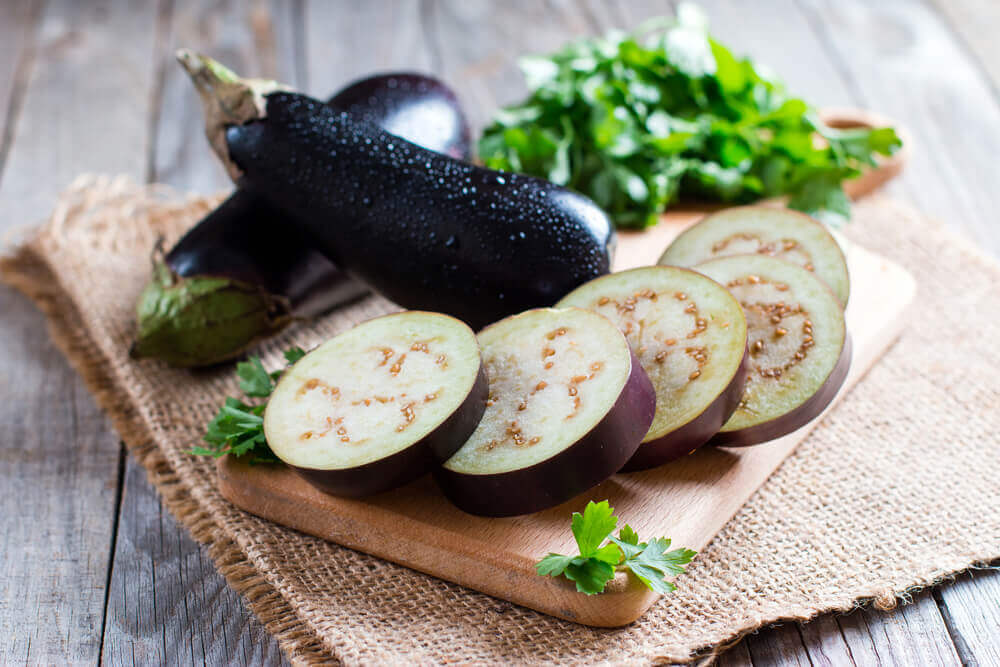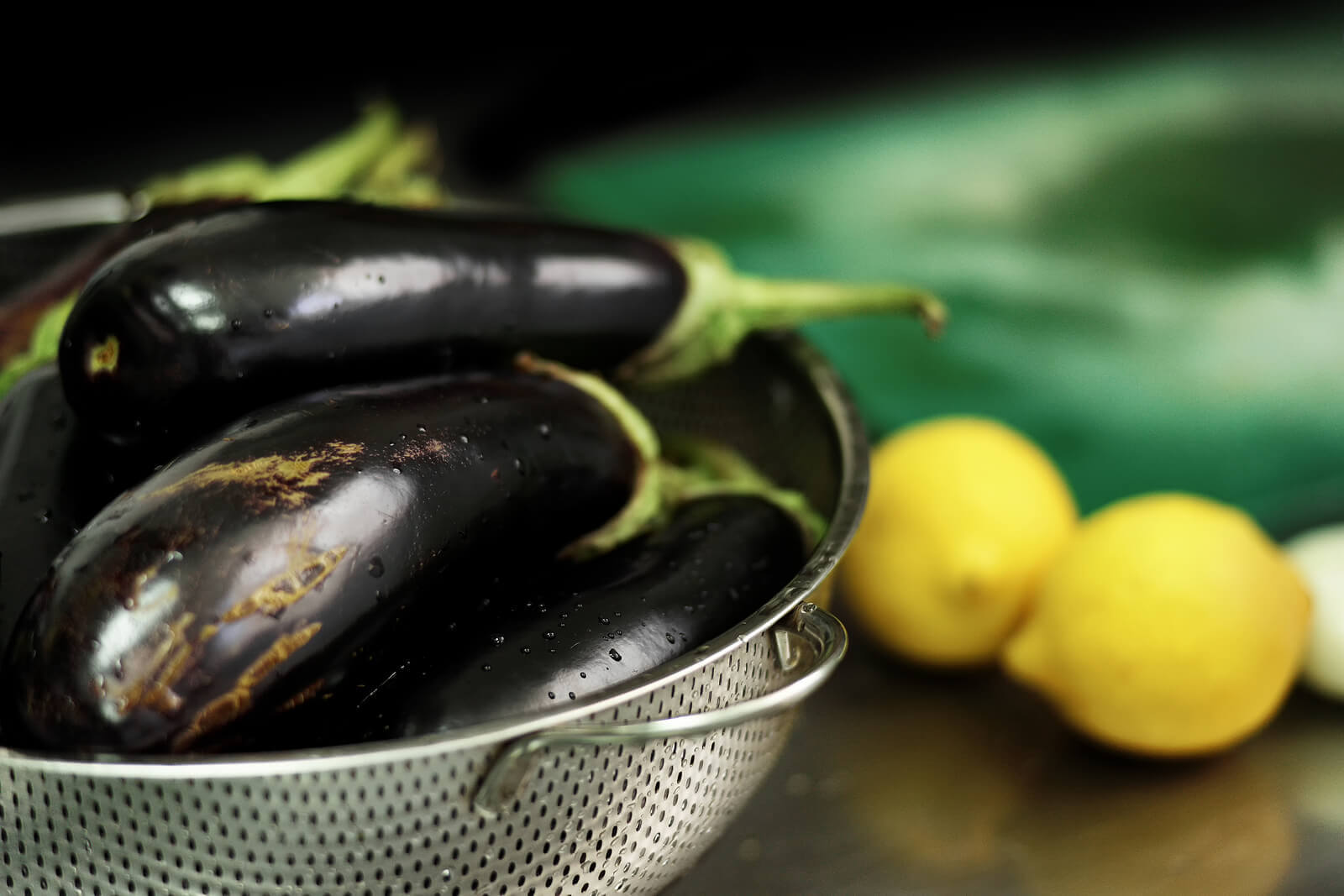5 Reasons to Drink Eggplant Water with Lemon


Written and verified by psychologist Valeria Sabater
Eggplant water with lemon is one of those natural and refreshing drinks that have emerged in recent years as healthy alternatives to commercial beverages.
As people are becoming more and more aware of how harmful commercial beverages are, more and more proposals like these arise, which, although at first glance seem strange combinations, later turn out to be tasty.
Water with eggplant and lemon is a healthy compliment that we can use when we feel like drinking something fresh that isn’t water or other common beverages (coffee, tea, fruit juices, smoothies, etc.).
Some people believe that this drink helps reduce abdominal fat and promote weight loss. However, at this point, we need to clarify that, by itself, no beverage can provide such benefits. Not even because it’s natural.
We must take advantage of healthy drinks, yes. But we must also maintain good lifestyle habits, especially in terms of food and exercise. Otherwise, it will be difficult to see good results.
Here are 5 reasons why you should give eggplant and lemon water a try.
1. A light juice, but with potential
According to data from the Spanish Nutrition Foundation (FEN), eggplant is a food rich in proteins and flavonoids. Specifically, the skin contains an anthocyanin, nasunin, with antioxidant action.
While it’s great in various recipes, when you cook it in water, you can use the liquid to make a good refreshing drink.
According to popular belief, most of the waters with which we boil vegetables such as carrots, cabbage, or peppers, contain minerals and phytonutrients that could favor digestion, the expulsion of retained liquids, and weight loss.
Discover: 5 little-known benefits of celery
2. Eggplant water with lemon, a great diuretic

Eggplant contains 90% water, which makes it a food with diuretic properties. At the same time, its low potassium content (5%) places it among the vegetables recommended by the foundation for diabetes in cases of nephropathy.
Consuming eggplant water with lemon could help us to reduce abdominal swelling and expel retained liquids.
3. Can it reduce your cholesterol levels?
According to popular belief, eggplant water with lemon may help reduce bad cholesterol. However, there’s no scientific evidence to support this.
The idea behind this belief is that, given the antioxidant content of lemon and eggplant, they may contribute to the health of the entire cardiovascular system.
4. It helps you feel full
There is no fat in eggplant water with lemon. However, its phytonutrients are said to have a very positive satiating effect, thus helping to control food cravings.
Also read: 7 reasons you should eat more eggplant
5. It maintains your liver
At the same time, according to beliefs, eggplant water with lemon may contribute to liver health, due to the antioxidants provided by its two main ingredients.
How do you make eggplant water with lemon?

- 1 liter of water
- 1 eggplant
- The juice from 1 lemon
- Optional: Blueberry juice (to give color to the beverage)
Preparation
You can make eggplant water one of two ways:
- First, you can use the water you boiled the eggplant in. Once you’ve saved it, add the juice from one lemon. It’s easy.
- The other method is also quite simple. Just wash the eggplant, slice it, and add it to a pitcher of water. Let it soak all night and save the water for the next day.
- Add the juice from one lemon and…voilà!
- Drink in moderation.
Remember that you can consume this natural beverage as a substitute for flavored waters, soft drinks, commercial teas, and the like. But never as a substitute for a main meal or the pharmacological treatment you have been prescribed.
All cited sources were thoroughly reviewed by our team to ensure their quality, reliability, currency, and validity. The bibliography of this article was considered reliable and of academic or scientific accuracy.
- Mechanism of action of dietary fibre in the human colon.
Stephen AM, Cummings JH.
https://www.ncbi.nlm.nih.gov/pubmed/7360261 - Cardioprotective properties of raw and cooked eggplant (Solanum melongena L).
Cardiovascular Research Center, University of Connecticut School of Medicine, Farmington, CT 06030-1110, USA.
https://www.ncbi.nlm.nih.gov/pubmed/21894326 - Eggplant, raw nutrition, fact and calories
https://nutritiondata.self.com/facts/vegetables-and-vegetable-products/2443/2
This text is provided for informational purposes only and does not replace consultation with a professional. If in doubt, consult your specialist.








